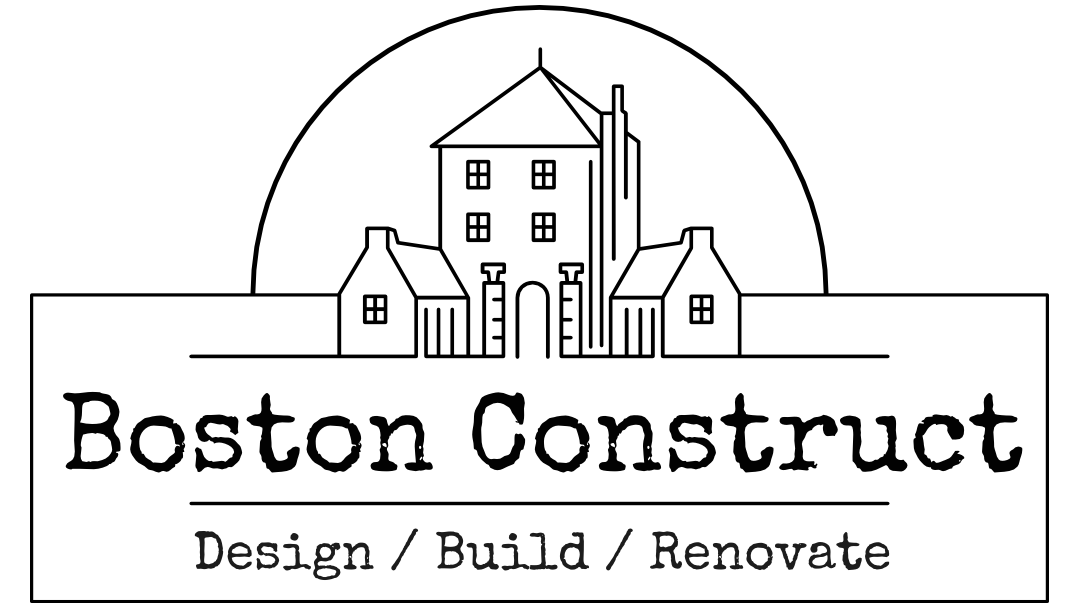A Homeowner's Guide to Navigating Boston Building Permits, Zoning Laws, and Regulations
Undertaking a custom home construction project in Boston requires not only a clear vision for your dream home, but also a thorough understanding of the city's building permits, zoning laws, and regulations. Navigating this complex process can be challenging for homeowners, but it is crucial to ensure that your custom home is compliant with local requirements and built to last. In this in-depth guide, we will provide essential information and insights to help you successfully manage Boston's building permits, zoning laws, and regulations.
Armed with the knowledge contained in this guide, you'll be better equipped to collaborate with your design-build team, ascertaining that each step of the custom home construction process aligns with regulatory requirements. Let Boston Construct assist you in overcoming these challenges and ensuring your project progresses smoothly, ultimately realizing your dream of a beautiful, compliant custom home in Boston.
Understanding Building Permits in Boston
Building permits are essential documents issued by city authorities that grant permission to undertake construction, renovation, or demolition projects. Acquiring these permits ensures that your custom home meets specific safety and structural standards defined by the City of Boston. Here are some key aspects of the building permit process:
1. Application: Submit a permit application to the City of Boston's Inspectional Services Department (ISD), providing detailed plans, specifications, and other necessary documents. A licensed contractor, architect, or engineer will typically manage this process for your home construction project.
2. Review: The ISD will review your project for compliance with zoning, building code, and environmental regulations. This process may involve multiple city agencies, including the Zoning Board of Appeal (ZBA) if a zoning variance is required.
3. Approval: Once your project receives approval and necessary sign-offs, the ISD will issue your permit. Construction can begin only after obtaining the approved permit.
Navigating Boston Zoning Laws
Zoning laws dictate how property owners can utilize their land within the City of Boston. These regulations aim to protect the character, safety, and quality of life for all residents. As a homeowner, it's vital to understand the zoning laws applicable to your custom home project:
1. Zoning Districts: Boston is divided into various zoning districts like residential, commercial, and industrial, with separate guidelines for new construction, renovations, and expansions in each district.
2. Dimensional Regulations: Within each zoning district, specific requirements govern lot sizes, building heights, setbacks, and other parameters. Review your project's consistency with these regulations to avoid potential delays or legal issues.
3. Zoning Variances: If your project doesn't fully align with the zoning regulations, you may need to seek a variance—a formal exception granted by the ZBA. Public hearings and additional review processes accompany variance requests.
Ensuring Compliance with Boston Building Codes
Building codes in Boston follow the Massachusetts State Building Code, which comprises various provisions to ensure the health and safety of building occupants. These regulations cover aspects like structural integrity, fire safety, accessibility, and energy efficiency. Key components include:
1. Plan Review: After submitting a permit application, your plans will be reviewed for compliance with building code requirements. This may involve inspection by multiple experts, such as structural engineers or fire safety consultants.
2. Construction Inspections: During construction, City of Boston inspectors or third-party specialists may visit the site at various stages to verify compliance with approved plans and code requirements. Any deviations must be corrected promptly.
3. Certificate of Occupancy: Upon completion of your custom home, you'll need to obtain a Certificate of Occupancy (CO) from the ISD. This document verifies that the building meets all applicable code requirements and is fit for occupancy.
Managing Environmental Regulations and Green Building Standards
Beyond building code and zoning compliance, your custom home project may be subject to additional environmental regulations and green building standards. Here are a few to consider:
1. Wetlands Protection Act: If your project is located near wetlands, rivers, or other water bodies, you may need approval from the Boston Conservation Commission to ensure minimal impact on these sensitive ecosystems.
2. Massachusetts Stretch Energy Code: Boston has adopted the Stretch Energy Code, designed to promote energy-efficient and environmentally friendly construction practices. New homes must meet specific energy performance requirements, such as insulation levels and HVAC system efficiency.
3. LEED (Leadership in Energy and Environmental Design) Certification: If you want to showcase your commitment to sustainability, consider pursuing LEED certification – a globally recognized green building certification program. LEED certified homes provide numerous benefits, including lower energy costs and improved indoor air quality.
By thoroughly understanding Boston's building permits, zoning laws, and regulations, you can help ensure a seamless construction experience and a safe, compliant custom home. Navigating these complexities may seem overwhelming, but with the support of a trusted design-build team, the process can be significantly streamlined.
Additionally, awareness of environmental regulations and green building standards will prove invaluable as you work towards creating a sustainable, energy-efficient custom home. By adhering to these guidelines, your new residence will not only meet regulatory requirements but also contribute to a greener, healthier living environment in Boston.
Build Confidently with Boston Construct's Expertise
Navigating the complexities of building permits, zoning laws, and regulations is a fundamental step to ensuring a seamless construction experience and a compliant custom home in Boston. However, tackling these challenges doesn't have to be a daunting task.
As a trusted design-build team, Boston Construct can create a custom home that aligns with regulatory requirements, innovative design solutions, and environmentally friendly practices. We stand ready to guide you through the permitting process, working proactively to identify and address any potential issues, ensuring a smooth construction experience. Contact our team today to discuss your custom home project and discover the peace of mind that comes with partnering with an experienced, knowledgeable, and committed design-build firm in Boston!

